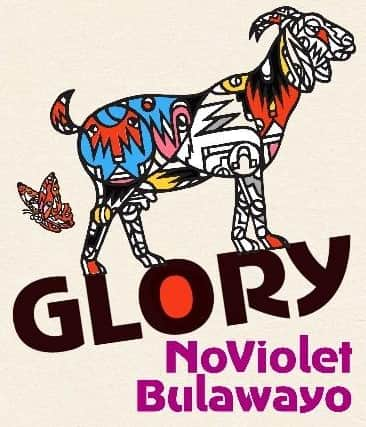Book review: Glory, by NoViolet Bulawayo


One of the less appreciated benefits of literary prizes, or even being shortlisted for a prize, is the space of opportunity they afford the writer. It short-circuits one of the most pernicious and true clichés about publishing. Publisher says “Wow, this is daring and interesting and new!” Book garner praise. Publisher says “Author, go and do that daring and interesting and new thing again!” Too often there is a kind of escalator paradox at work. It is easy to get on, but rather difficult to turn round half way up and go back to start on a different route.
I was very impressed indeed with NoViolent Bulawayo’s debut, We Need New Names; so much so that I argued hard it be on the shortlist for the Booker Prize, which it duly was. Although one would term in a realist novel, set in Zimbabwe and the United States, there were interesting technical and formal flourishes. An abiding anxiety for critics, reviewers and judges is that we praise something and then hold our breaths when the next book comes out: was the first a one-hit wonder, a flash in the pan?
Advertisement
Hide AdIt is therefore a delight to be able to say that Bulawayo’s new novel, Glory, is even better and radically different. It is set in a fictitious African country called “Jidada with a -da and another -da”, and opens with the celebrations for the anniversary of the Independence Day. Jidada has been governed for 40 years by if the “Father of the Nation”, “the Old Horse”, a former freedom fighter. Importantly, he is also a horse. During the celebrations Bulawayo also introduces the Prophet Dr OG Moses, a pig; Marvellous Dr Sweet Mother, the Old Horse’s conniving wife and a donkey and the ferocious Commander Jambanja, a dog in charge of “the Defenders”. It is too neat to refer to this as a kind of Zimbabwean Animal Farm. What seems important is the anthropomorphic animals are fictions. How a dog smokes a cigarette or a horse holds a steering wheel is not the kind of question to ask of this book. If there were one book I would compare it to it would be Ngugi wa Thiong’o’s Wizard of the Crow, an equally acerbic, precise, heart-rending and hilarious analysis of tyranny.


The Old Horse presides over a cabinet that includes the Minister of the Revolution, the Minister of Corruption, the Minister of Things, the Minister of Nothing and even the Minister of Looting. Bulawayo captures the insane double-think of dictatorship. On one hand, the reality of Jidada’s situation is undeniable: but it is the West, the very West he expelled, that is to blame “for economic sanctions, for ugly trade practices, for aid addiction, for the shutting down of factories and businesses in Jidada, for the absence of jobs, for the poor performance of farms, for the brain drain, for the homosexuals, for the power cuts and water cuts, for the miserable state of Jidada’s public schools and government hospitals and bridges and public toilets and public libraries, for the loose morals among the youth, for the potholes on the roads and the unpicked trash on the streets, for the fluctuating crime rates, for the atrocious pass rates in national examinations, for the defeat of the Jidada national soccer team at the recent continental finals, for the drought, for the strange phenomenon of married men having second families on the side called small houses, for the rise in sorcery, for the dearth of production of exciting works by local poets and writers”. At the same time, Jidada and its leader is praised in the most hyperbolic and delusional terms for being the greatest country in Africa. Bulawayo uses litanies to great effect throughout, and the incantatory feel gives a timeless quality to the book.
The celebrations are interrupted by protestors, and the generals are surreptitiously plotting a coup d’etat. One strand of the narrative involves the installation of a new leader, and choral sections chart the varying reactions. It is a new dawn, the Old Horse wasn’t so bad, we’ll wait and see, what if Tuvy, “the Saviour of the New Dispensation” is as bad if not worse? But another strand humanises all this through the story of Destiny, a young woman who has returned to Jidada, and who is seeking her mother and her family history. Without giving anything away, this part of the story reduced me to tears. Yet it is a funny book, and scenes like Tuvy’s quasi-sexual relationship with a Siri or when he names every street in the country “Tuvy” are sharp; as especially is a section entitled “Return of the Living Queues”. The novel is punctuated with African words, most frequently “tholokutho” which peals off nearly every page. It is a difficult word to translate, as most exclamatory words are, but it literally means “you find that” and expresses astonishment or bewilderment. I found substituting the very un-African “gosh” quite useful.
So why animals? The ending is redemptive and given how closely it limns to Zimbabwean contemporary history, the closure has to be fictional. It is brave, and moving, as the citizens learn, slowly, to be unafraid. Bulawayo invites you to suspend disbelief in order that you believe.
Glory, by NoViolet Bulawayo, Chatto & Windus, £18.99
A message from the Editor:
Thank you for reading this article. We're more reliant on your support than ever as the shift in consumer habits brought about by coronavirus impacts our advertisers.
If you haven't already, please consider supporting our trusted, fact-checked journalism by taking out a digital subscription at https://www.scotsman.com/subscriptions